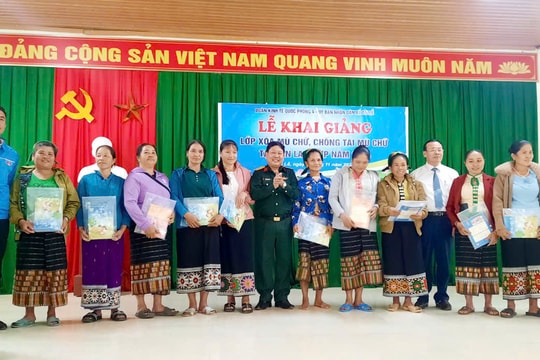Part 1: The teacher in military uniform
Over the years, the Economic-Defense Group 4 has opened dozens of literacy classes in the highland villages of Nghe An. People are not only taught to read and write, fully equipped with learning materials, but also taught a lot of knowledge about agriculture, helping to improve their lives.
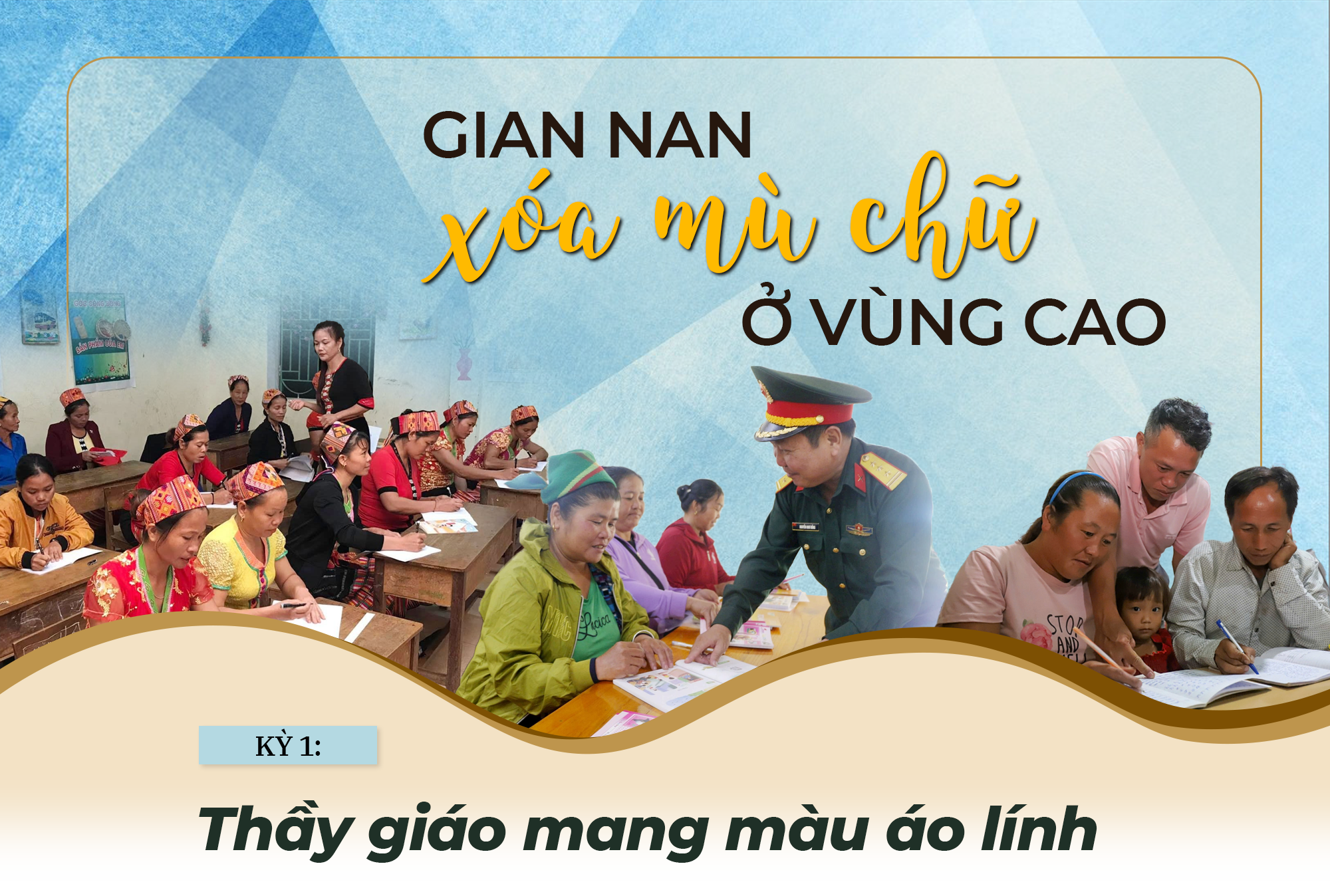
My Ha - Tien Hung• November 20, 2024
Over the years, the Economic-Defense Group 4 has opened dozens of literacy classes in the highland villages of Nghe An. People are not only taught to read and write, fully equipped with learning materials, but also taught a lot of knowledge about agriculture, helping to improve their lives.

In mid-November 2024, at Lam Son village (Tri Le commune, Que Phong district), the opening ceremony of the illiteracy eradication and anti-illiteracy class took place. The class was opened by Economic - Defense Group 4, within the Government's Project "Enhancing young intellectuals volunteering to work in economic - defense zones". The teachers are young intellectuals volunteering to work at Economic - Defense Group 4.
As the opening ceremony was approaching, Ms. Quang Thi Hoa (Lam Son village, 40 years old) hurriedly ran over to register for the class. “Ms. Hoa is the 26th student in this class. Yesterday, only 21 students registered, but by the opening ceremony, there were 26 students. The most difficult thing is still to persuade students to come to class,” said Lieutenant Colonel Nguyen Nhu Hong - Deputy Political Commissar of Economic - Defense Group 4.
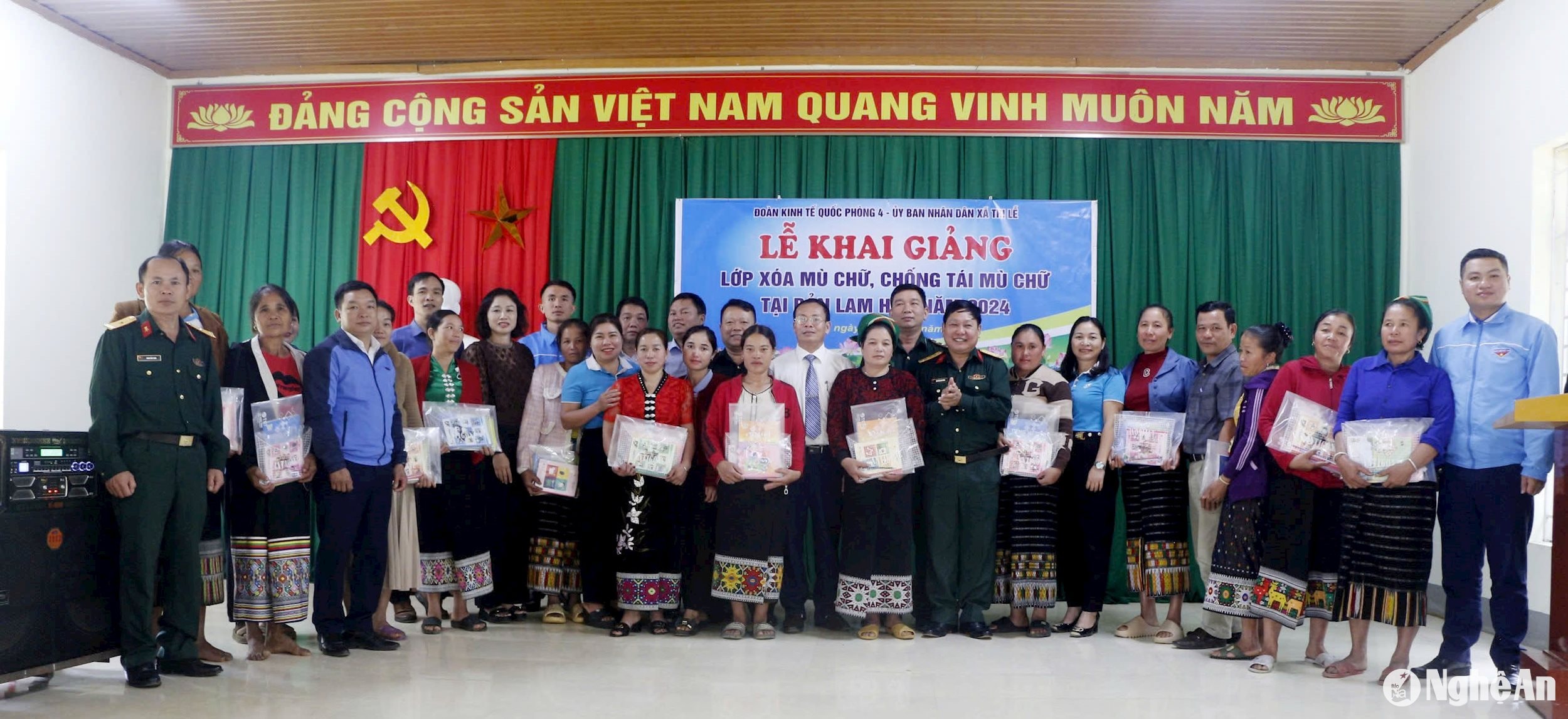
Ms. Hoa, like many other local women, had never been to school before due to difficult living conditions. “I was illiterate, and the letters did not know me. Because I was illiterate, I faced countless difficulties. I could only stay in this village,” Ms. Hoa said with a smile. A few days ago, soldiers and local authorities came to her house to persuade her to join a literacy class. Although she really wanted to join, because her husband worked far away and she could not get his permission, she did not dare to register.
This morning, when my husband came home from work, when I asked, he said, “If you like learning to read and write so much, why don’t you go?” So I ran to the class to register. Now that I’m a grandmother, I’m embarrassed to go to school.”
Ms. Quang Thi Hoa, Lam Son village (Tri Le commune, Que Phong district)
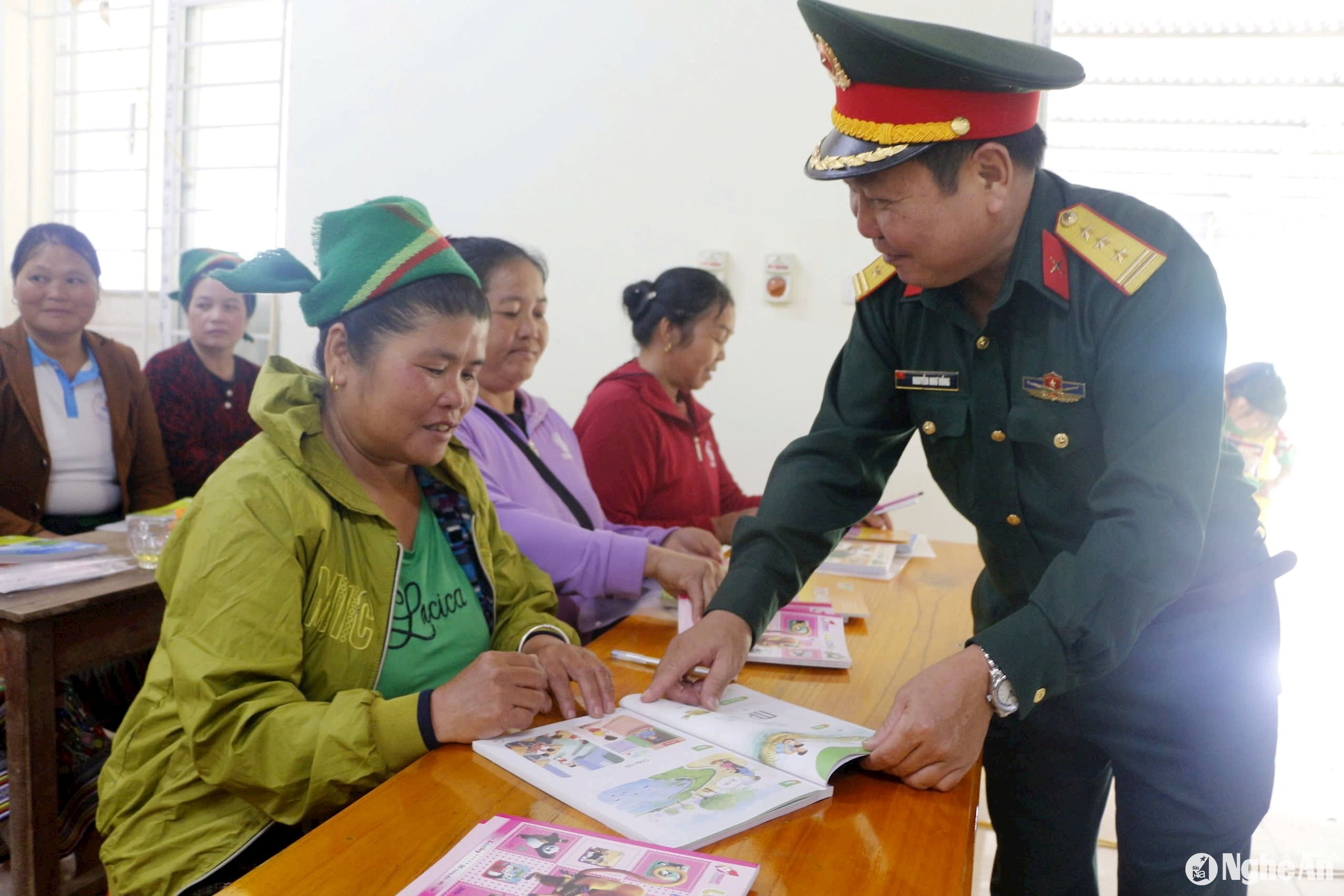
Similar to Ms. Hoa, Ms. Luong Thi Hien (51 years old, Lam Hop village) also went to school for the first time when she had enough grandchildren. “Not knowing how to read and write is very inconvenient. I know how to ride a motorbike but I can’t read and write so I can’t study, so every time I have to go far away, I just have to walk. My child got married far away and wanted to call or text to ask how she was doing, but I don’t know how to read and write,” Ms. Hien said.
The class has only 26 students, but there are 4 teachers, 2 main teachers, 2 other teachers take turns tutoring and guiding each student. Because many students cannot speak the common language, most of the teachers are selected from ethnic minorities. There are also Mong, Thai and Kho Mu teachers. One of those teachers is Mr. Ha Van Cang (Thai, from Kem Don village (Tri Le commune), 26 years old this year).
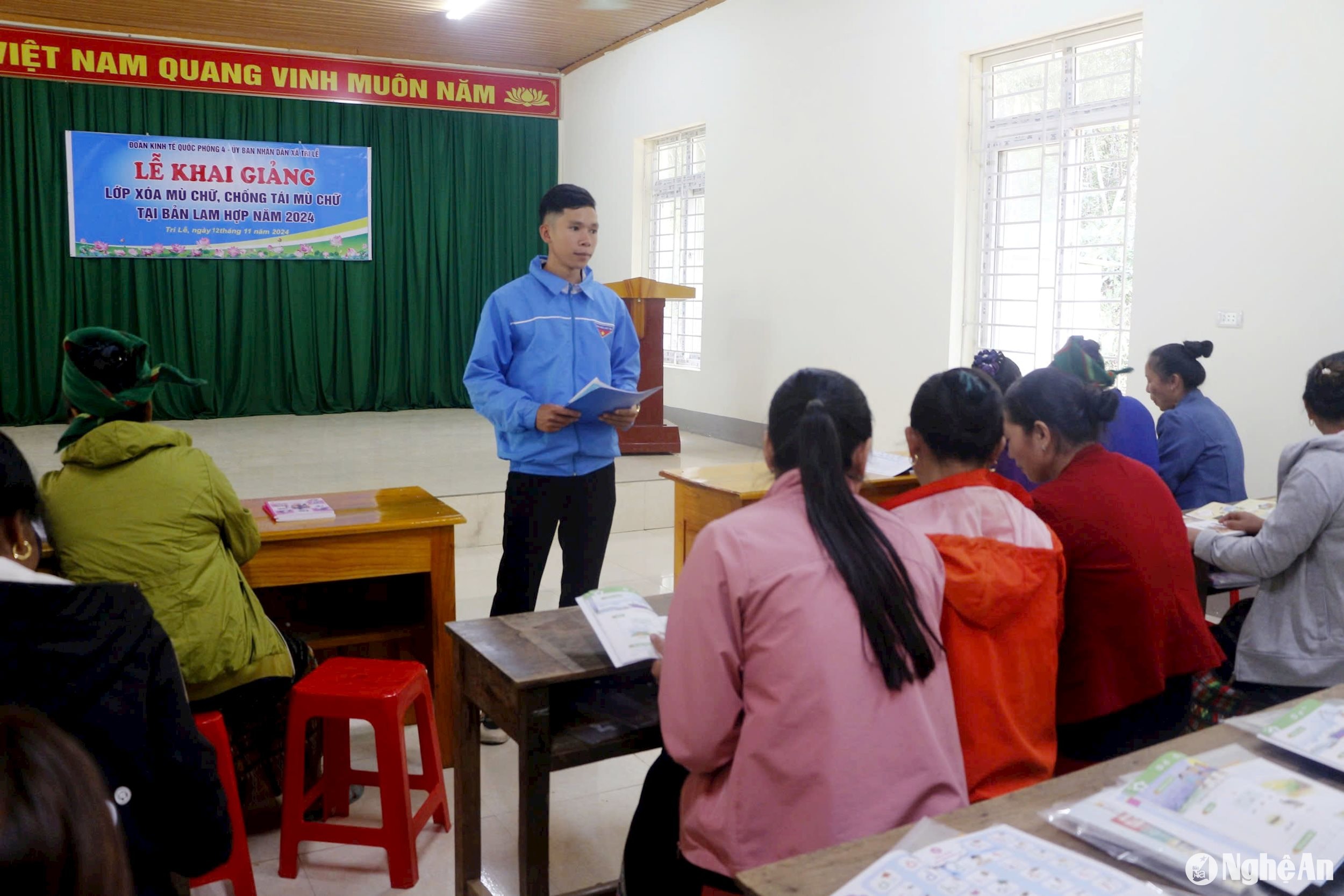
According to Cang, after graduating from Vinh University, Cang went to the South to work as a teacher at a high school. Cang's mother was also illiterate. Last year, the Economic - Defense Group 4 opened a literacy class in Kem Don village, so Cang's mother joined. After more than a year of perseverance, her mother could read and write fluently. "When I received the text message written by my mother on the phone, I was so moved that I cried. That's why I quit my job there, applied to join the Economic - Defense Group 4, and became a volunteer young intellectual to teach this literacy class," Cang said.

Economic - Defense Group 4 is stationed in 8 communes in 2 districts of Ky Son and Que Phong, with the functions of training, combat readiness; doing mass mobilization work, building local political bases; implementing Economic - Defense projects... According to Deputy Political Commissar Nguyen Nhu Hong, in the process of building the Ky Son - Que Phong Economic - Defense Zone, through the work of grasping the area, the Group Commander realized that the rate of people who have not gone to school, or have gone to school but after a long time without access to letters, have become illiterate is still very high. This is an important cause leading to incorrect perception of the Party and State's policies and guidelines, making it easy for bad people to take advantage of, incite, and entice them to do bad things; it is also the cause of not being able to absorb new scientific and technical knowledge, leading to low labor productivity, crop and livestock productivity, slow development of people's lives, and unsustainable hunger eradication and poverty reduction. From that reality, every year Economic - Defense Group 4 has coordinated with local Party committees, authorities and the education sector to open literacy classes.

According to Lieutenant Colonel Nguyen Nhu Hong, although it is an illiteracy eradication class, when coming to class, students also learn a lot of other knowledge. In addition to the cultural curriculum, students are also taught knowledge about science and technology in cultivation and animal husbandry; how to take care of maternal and child health; disease prevention, environmental protection, protection of public works... These "after-school" programs are organized weekly by officers, employees, and young volunteer intellectuals of Economic - Defense Group 4.
We flexibly combine literacy teaching with knowledge dissemination, thereby fundamentally changing the awareness and farming and livestock raising skills of students after each class, contributing to the local Party Committee and government in accelerating the work of hunger eradication and poverty reduction, and making people firmly believe in the Party.
Lieutenant Colonel Nguyen Nhu Hong - Deputy Political Commissar of Economic - Defense Group 4
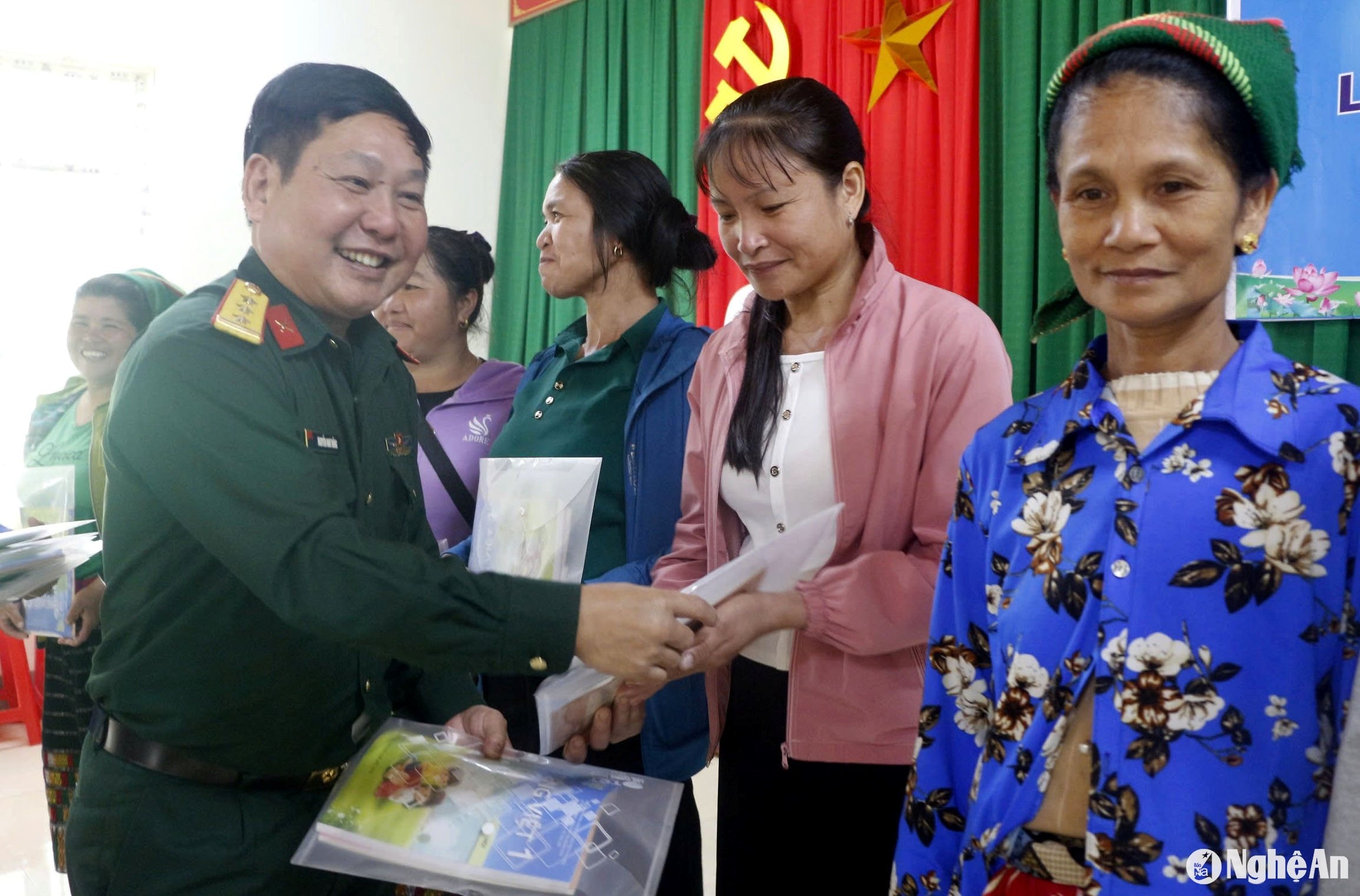
Lieutenant Colonel Hong also said that during the learning process, the unit also organized cultural and artistic exchange activities with local traditional identity; organized activities to celebrate March 8, November 20, organized collective birthdays... thereby creating a spirit of learning for students.
Mr. Xong Ba Cha - Vice Chairman of Tri Le Commune People's Committee said: "Due to cultural customs as well as the difficult economic life in the past, the number of illiterate people in the area is still very high. Especially in villages with a large population of Mong people. The Mong people believe that daughters are other people's children, no matter how much investment they make, they will not receive anything, because after marriage they will also make their husband's family rich. That's why they did not send their daughters to school in the past. That's why most Mong women aged 40 and over are illiterate. Classes like this are opened as a second opportunity for them to learn letters and basic knowledge."
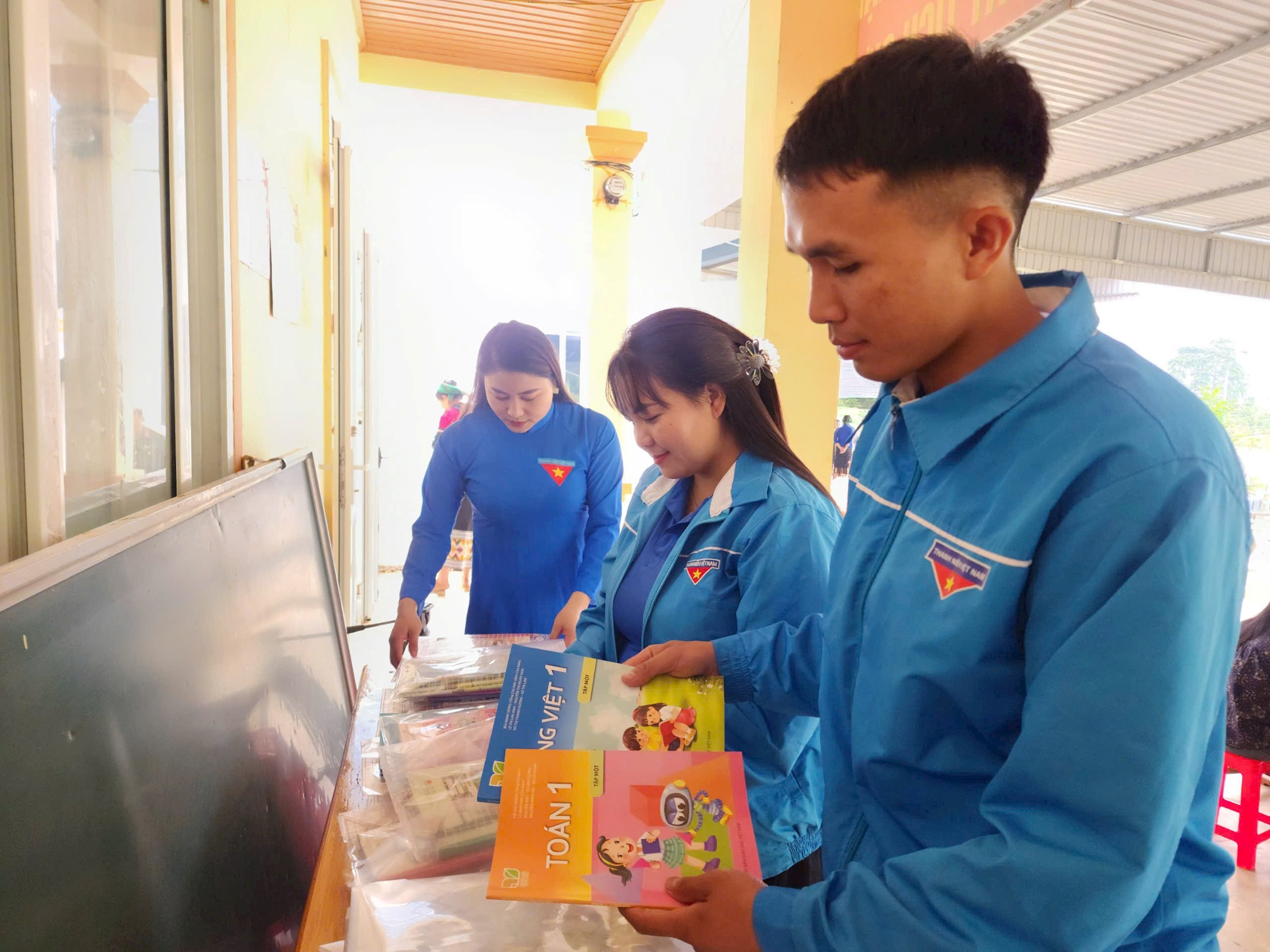
By 2023, the whole country still has more than 189,000 people aged 15 - 35 who have not met the literacy standards of level 1 (completed grade 3) and more than 322,000 people who have not met the literacy standards of level 2 (completed primary school). Meanwhile, for the age group of 15 - 60, this rate with the standard of level 1 is more than 734,000 people and more than 1.7 million people with the standard of level 2. In Nghe An, in 2023, Nghe An was recognized as meeting the standard of eliminating illiteracy at level 2. Recognized as meeting the standard of universal preschool education for 5-year-old children. Recognized as meeting the standard of universal education at level 3 and meeting the standard of universal secondary education at level 1. However, the whole province still has more than 16,000 people, aged 50 - 60, who are illiterate (accounting for 0.7% of the population).


